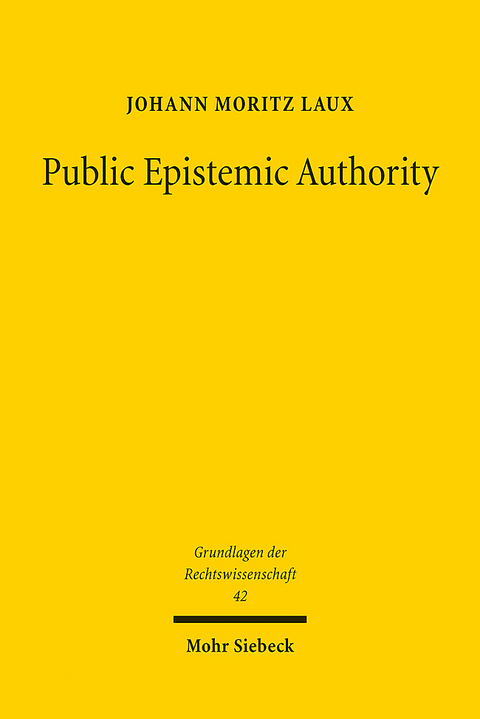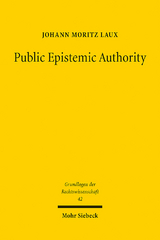Public Epistemic Authority
Normative Institutional Design for EU Law
Seiten
Inter- and supranational courts derive their legitimacy partly from an institutional comparison: judges' legal expertise and the quality of judicial procedures justify a court's claim to authority towards other branches of government and other courts with overlapping jurisdiction. To provide a benchmark for assessing judicial outcomes that is compatible with democratic commitments, Johann Laux suggests a new normative category, Public Epistemic Authority (PEA). It builds on the mechanisms behind theories of collective intelligence and empirical research on judicial decision-making. PEA tracks judges' collective ability to reliably identify breaches of law. It focuses on cognitive tasks in adjudication. The author applies PEA to the Court of Justice of the European Union and offers suggestions for improving its institutional design.
Born 1984; read law, political science, and philosophy at the University of Hamburg, King's College London, the London School of Economics, and the University of California, Berkeley; 2010 Mag. iur. (University of Hamburg); 2013 M.Sc. from the London School of Economics; 2019 Dr. iur. (University of Hamburg); 2019 Emile Noël Fellow at New York University; since 2019 Postdoctoral Researcher at the Oxford Internet Institute, University of Oxford.
| Erscheinungsdatum | 30.04.2022 |
|---|---|
| Reihe/Serie | Grundlagen der Rechtswissenschaft |
| Verlagsort | Tübingen |
| Sprache | englisch |
| Gewicht | 378 g |
| Themenwelt | Recht / Steuern ► Allgemeines / Lexika |
| Recht / Steuern ► EU / Internationales Recht | |
| Recht / Steuern ► Öffentliches Recht | |
| Schlagworte | Cognitive Diversity • collective intelligence • Democracy • Legitimacy • Wisdom of the Crowds |
| ISBN-10 | 3-16-160069-X / 316160069X |
| ISBN-13 | 978-3-16-160069-2 / 9783161600692 |
| Zustand | Neuware |
| Informationen gemäß Produktsicherheitsverordnung (GPSR) | |
| Haben Sie eine Frage zum Produkt? |
Mehr entdecken
aus dem Bereich
aus dem Bereich
Sammlung des Zivil-, Straf- und Verfahrensrechts, Rechtsstand: 14. …
Buch | Hardcover (2024)
C.H.Beck (Verlag)
49,00 €
Klausuren, Hausarbeiten, Seminare, Bachelor- und Masterarbeiten
Buch | Softcover (2021)
C.H.Beck (Verlag)
12,90 €




